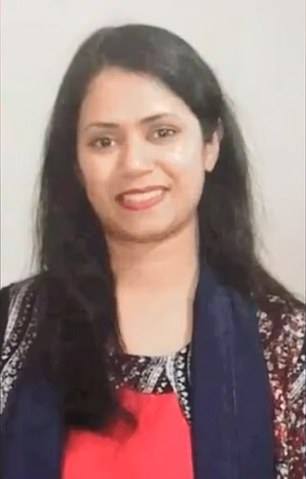RIP Syeda Nirupama Hossain
by Sherele Moody | April 23, 2019 12:52 pm
Sherele Moody: 33-year-old Syeda Nirupama Hossain was stabbed to death on Easter Sunday in Minto. Her children – aged six and 10 – slept nearby as their dad allegedly stole their mum’s life with a knife. Syeda’s husband has been charged with her murder.
Syeda was from Bangladesh.
She worked hard for her family, supporting her children and husband by cooking traditional Bangladeshi sweets and selling them to shops around Sydney. Her husband did not work so Syeda carried the financial burden of raising two kids and supporting another adult.
Media reports about Syeda’s death repeatedly mention that police were not aware of domestic violence in the Hossain home. Just because Syeda never reported abuse to police, does not mean she was not experiencing it.
Women from immigrant backgrounds – particularly those who speak English as a second language – may often be unaware of what constitutes domestic violence.
And if they do realise that abuse within their relationship is both illegal and unacceptable in Australia, the chances of them seeking support is extremely low.
The problem is that in Australia, if you are from a minority background – ie ethnic, queer or disabled – and you are experiencing domestic violence you will most likely fall through the very few safety nets that we have available.
Immigrant women are particularly vulnerable for a range of reasons. Non-citizens have major issues accessing legal aid, income and housing support and healthcare.
If you are lucky you will get a bed in a refuge, but that bed will only be for a little while and after that you will most likely be homeless because there are no other beds available, there is no money for motels and public housing is full.
You won’t get any money because your citizenship status limits your access to parenting and other payments. You will pay full price for medical services and you will need a small fortune to pay for legals.
The chances of social workers and other support professionals speaking your language will be almost zero so communication barriers have a major impact on your safety options.
In some cultures it can be unacceptable for a woman to leave the marriage. She may be pressured to stay by family members or may feel that she will bring disgrace to her family and to his. And even if you leave, the chances are you will lose your kids. He may grab your kids and leave the country. Or he may use his wealth in court to bleed you dry financially and to gain full custody. In the worst of cases – he may kill the children – and probably you.
It is hard enough for an Australian-born woman to leave abuse because there are simply not enough resources available for the many thousands of victims in our country. There is almost no hope for women from non-English-speaking backgrounds.
It is important to remember that domestic violence murders do not happen in a vacuum. A man does not wake up one day and – out of the blue – decide to kill his partner. The murder is often the culmination of long-term anger and control over the victim. Physical, sexual, financial and emotional abuse can go on for years without police, neighbours, friends and family knowing.
This year, 19 women have been killed as a result of murder or manslaughter. Five children are also dead. Most of these killings are due to family violence and most are male perpetrated. Nine of the dead women came from ethnic communities. Meanwhile, our country’s leaders are applying tiny Band-Aids to a profusely bleeding wound.
Until we get real leadership and real funding invested into preventing violence and supporting all victims regardless of their backgrounds, there will be many more dead women and kids.
RIP Syeda Nirupama Hossain

Syeda Nirupama Hossain
Source URL: https://priyoaustralia.com.au/articles/2019/rip-syeda-nirupama-hossain/